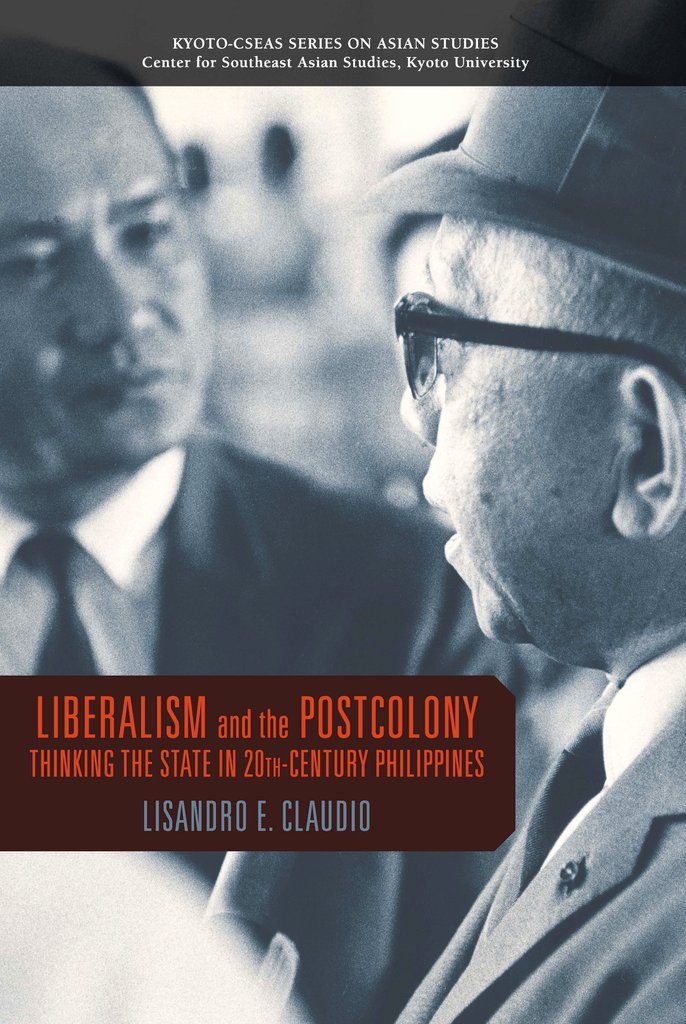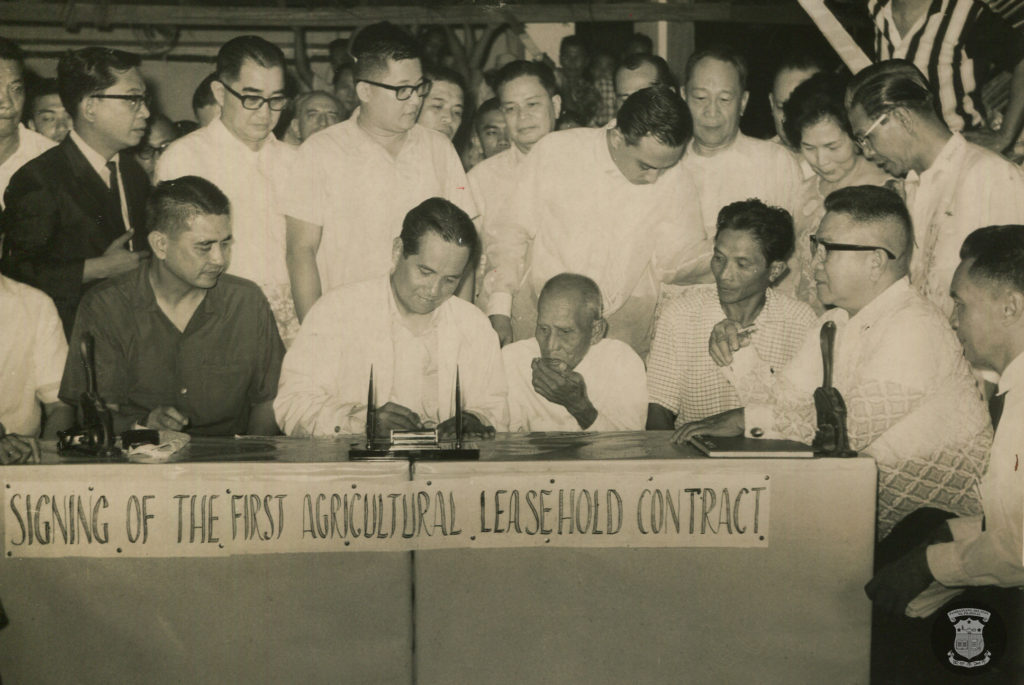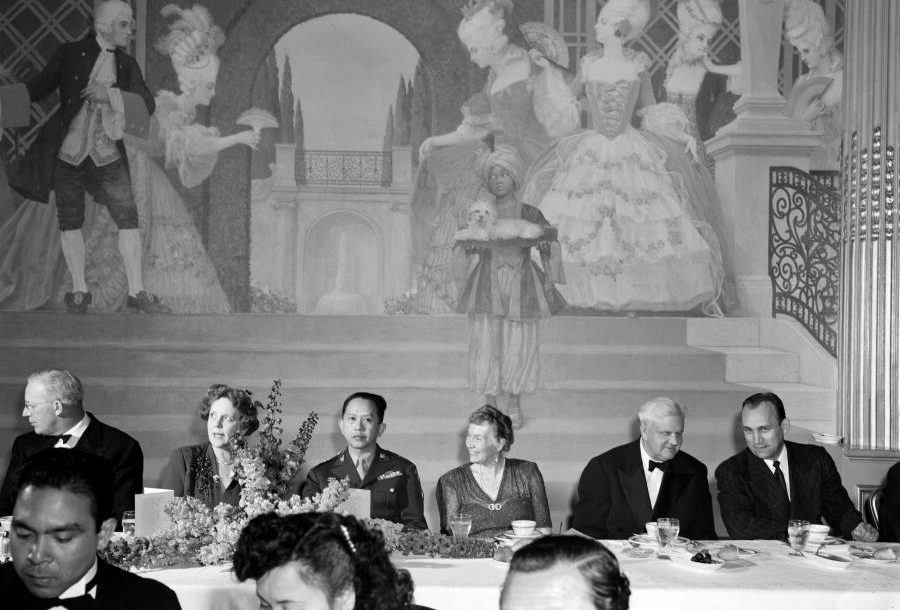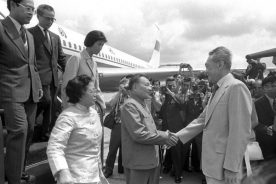 The political history of Southeast Asia has been replete with ism’s, from the “ism’s” of political modernity—nationalism, modernism, Marxism, socialism, communism, Islamism, conservatism—to the ism’s of the region’s strong-man politicians—Mahathirism, Thaksinism or Duterteism. Yet rarely has liberalism appeared in this list. In Liberalism and the Postcolony, Lisandro E. Claudio confronts Filipino historiography to understand the absence of a tradition, which, he argues, has been an important driving force in Filipino politics since Rizal. In doing so he makes a broader call for the reassessment of the place of liberalism within the histories and trajectories of the nations of Southeast Asia and the Global South.
The political history of Southeast Asia has been replete with ism’s, from the “ism’s” of political modernity—nationalism, modernism, Marxism, socialism, communism, Islamism, conservatism—to the ism’s of the region’s strong-man politicians—Mahathirism, Thaksinism or Duterteism. Yet rarely has liberalism appeared in this list. In Liberalism and the Postcolony, Lisandro E. Claudio confronts Filipino historiography to understand the absence of a tradition, which, he argues, has been an important driving force in Filipino politics since Rizal. In doing so he makes a broader call for the reassessment of the place of liberalism within the histories and trajectories of the nations of Southeast Asia and the Global South.
In the case of Filipino nationalist historiography this entails, for Claudio, a reassessment of what he calls the “Diliman Consensus”, a tradition of Philippine historiography which developed around the work of Teodoro Agoncillo (The Revolt of the Masses) and Renato Constantino (particularly A History of the Philippines), both based at the University of the Philippines’ Diliman campus in Manila. This consensus identified the domain of anti-colonial nationalist politics in the mass sphere, defined by a politics of class and (revolutionary) protest, and a politics which was aimed against elitist and Western categories of thought—that is to say, a discourse of popular liberation. Against this, Claudio’s book wishes to resurrect a form of political thought and historical analysis which is far less binary, nativist and revolutionary and far more hybrid, pragmatic and cosmopolitan.
The spectre which hangs over Claudio’s book is the now long-established anxiety in Southeast Asia around the trajectory of modern nationalism and the nation-state. It emerges out of a concern that early nationalist movements, which tended to be largely modernist, secular and multi-racial in outlook, have given way to forms of technocracy, populism and ethno-religious communalism which has in turn transformed previously tolerant, diverse and modernising societies into more intolerant, authoritarian states.
Against this spectre, Claudio wishes to resurrect the project of postcolonial liberal nationalism.
Turning to Ramachandra Guha’s reading of Indian liberalism, Claudio follows Guha in arguing against an ideological understanding of liberalism—for Guha it is “a sensibility rather than a theory”—and a sensibility principally defined by three attributes, a hope for the future (and thus a modernist belief in progress), patriotism (and thus the centrality of nation-building to politics) and the construction of stable and rule-governed institutions for civil society. This liberal sensibility is for Claudio “an image of the postcolony comfortable with modernity” (p. 8). It is defined therefore by a critical attitude towards totalitarian or nativist “isms”, from communism to Thirdworldism, and critical of authoritarian, radical or extremist politics, in favour of a more moderate, critical, pragmatic and middle-ground political sensibility.
Postcolonial modernity
What is most valuable about Claudio’s book is its comparative intent. His focus on the history of political thought gives his study a scope which allows him to talk to the wider region and the Global South, as well as to the broader field of postcolonial theory. At the heart of Claudio’s book is a concern with the figure of modernity. Rejected, he argues, by much of postcolonial theory, he wishes to unearth an indigenous modernist sensibility which can restore the now-abandoned Enlightenment values which he views as politically vital today. In keeping then with Vivek Chibber’s Postcolonial Theory and the Specter of Capital (which Claudio references), Claudio is looking to promote a modernity and an Enlightenment which isn’t Western nor colonising, but which is global in scope.
Claudio’s study tells the story of five Filipinos whose work in the period from the 1920s to the 1970s was paradigmatic of Filipino liberalism. The book can be seen as building upon the literature of late colonial political modernity, exemplified by Loh Kah Seng et. al.’s conceptualisation of the “tangled strands of modernity” underpinning the anti-colonial social democratic politics of the Fajar generation in Malaya, Peter Zinoman’s work on Vu Trong Phung’s “colonial republicanism” through his commitment to anti-colonialism, anti-Communism and modernist realism, and Carol Ann Boshier’s recently published Mapping Cultural Nationalism, which highlights the role of learned societies in developing a modernist and nationalist intellectual discourse in colonial Burma.
Such studies have similarly highlighted an alternative and indigenous process of thinking modernity in the postcolony, often within what Claudio would understand as a liberal framework. Nevertheless, what is often downplayed in Claudio’s account of this modernity is the necessary tensions and contradictions that other such studies have highlighted—in particular the way in which colonial indirect rule and uneven processes of modernisation placed local modernities in tension with colonial power dynamics as well as pre-modern and pre-capitalist social formations. This entailed the realisation of a postcolonial modernity in reference to two prominent discourses: the first a discourse of cultural difference, in particular nationalism (and the production of national modernities), and the second a discourse of developmentalism and the need to bring those left outside the scope of modernisation, within.
It is these discourses that Claudio is placing in tension with liberalism when he reflects on the careers of Camilo Osias, the politician and educationalist who through his writing promoted an outward-looking and cosmopolitan national education system, and Salvador Araneta, the politician and economist who promoted social democratic economic planning in opposition to what he perceived as the dominant economic populism. Yet what he seems to look past is the way in which these forces didn’t incidentally, but rather necessarily, challenge the liberal modern outlook of the statesmen and bureaucrats which he studies.
This was played out particularly in the politics of those postcolonial Southeast Asian states which inherited liberal democratic constitutional structures. Such states have had to incorporate within the nation vast swathes of their populations which fell outside of the domain of liberal civil society, in particular the rural peasantry, peripheral regions, and those who fell outside of the sphere of liberal colonial education. This entailed on the one hand a need to appeal to those electorates in non-liberal terms, often emphasising local cultural or religious issues, vernacular language and vernacular politics and on the other hand creating a series of non-liberal exceptions to liberal constitutional norms, from direct rule through states of exception and the suspension of the rule of law to preferential policies for particular racial or religious groups or distributional concessions made to particular groups and localities.

Image credit: Republic of the Philippines’ Official Gazette, Public Domain
Non-liberal politics
It is these processes of deviations from liberal norms which scholars in South and Southeast Asia began to study to understand how, outside of the framework of the liberal constitutional state, the post-colonial state managed to gain legitimacy over the populations it was tasked with governing. In South Asia, this work coalesced particularly around the Subaltern studies collective, founded partly in reaction to the challenge against Indian democracy with the onset of the Emergency, which they sought to understand through a focus on the split between the elite and mass domains.
In Southeast Asia, similar study of politics and history “from below” was exemplified by the work of figures such as James Scott, Benedict Kerkvliet, Andrew Walker, Syed Husin Ali, Cheah Boon Kheng, Reynardo Ielto and Max Lane, amongst others. Much of this research has been, in a similar vein to Claudio’s book, critical of standard nationalist historiography but has also offered critical understandings of how the masses were incorporated into the nation, through concepts of hegemony, populism and clientelism, to name but a few.
Claudio’s engagement with this tradition is, however, minimal. He sees in the elite vs. masses distinction a simplification of Filipino society, and in the critique of Filipino liberalism as elitist and capitalist a misrepresentation of the true nature of liberal thought. What is lost here however is an engagement with the more nuanced understandings of non-liberal political forms in the postcolony: firstly with regards to non-liberal forms of anti-colonial nationalism such as socialist or communist movements which weren’t merely violent or extremist but which sought to develop critiques of colonial and neocolonial power, and secondly the kinds of non-liberal political action which have been central to processes of nation-building and democratic empowerment.
One can think here of Andrew Walker’s studies of rural Thailand, Benedict Kerkvliet’s study of everyday politics or Farish Noor’s study of PAS’s Islamist politics in Malaysia—studies which have highlighted the mobilising and empowering aspects of forces (from populism to religious or regional identities) which modern day liberals disavow as extremist or corrupt. It could be argued however that these political forms have continued to be the norm and not the exception in processes of nation-building and democratisation in Southeast Asia, and for this reason they cannot be ignored.
Yet Claudio’s analysis overlooks these forms in favour of asserting a new binary division within postcolonial politics, between an enlightened liberalism and attacks by anti-liberal forces, composed of political extremists and corrupt elites. Both of these groups for Claudio set out to destroy key tenets of the liberal worldview: the open public sphere, independent institutions of civil society, and the rule of law. This emerges particularly in Claudio’s discussion of the response of Salvadore P. Lopez, the president of the University of the Philippines between 1969-1975, and a critic of Marcos, to the politics of martial rule, but is also a narrative recognisable in the political discourses of other Southeast Asian states.
Postcolonial liberalism today
What is ultimately missing from Claudio’s analysis is an analysis of that class which has been the greatest purveyor of liberalism in the region’s postcolonies (and which was important to Claudio’s earlier work): the middle class. This is the class which has been the political base for movements advocating progressive, moderate and modernising politics often centred around the importance of institutions of civil society and the rule of law. Yet it is also the class which has, in the face of pressures from below, emerged as sceptical of liberal politics. This ambivalence with regards to liberalism has been understood by Wataru Kusaka in terms of the “moral politics” of the Filipino middle class, in which divisions between the middle classes and “the rest” have developed into a moral division, justifying what might be seen as illiberal measures against the other. This is the case not only in Manila but also Bangkok, Kuala Lumpur and Jakarta.
This leads Claudio to pass over the important political question of how liberalism is to reassert itself today, in the face of apparent indifference from broad sections of the population. With the rise of Duterte, this question is of course of immediate importance for Claudio, but his book ends on an uncertain note, wondering if the rise of Duterte is a symptom of the “30-year expiration date” of liberal-democratic experiments in the Philippines. Yet perhaps the problem lies in the very way in which Claudio conceptualises liberal politics. Highlighting that such a politics operates through institutions which balance plural interests and emphasise deliberation, he goes on to argue,
How Deng and his heirs misunderstood Singapore
Chinese elites have looked to Singapore as a model throughout much of the reform era, but have failed to understand what made the city-state tick.
The university might be an ideal model for liberal politics, but the university can also be an ivory tower, cut off from the real world outside. In the university there might be only students and teachers—liberal subjects stripped of broader identities, interests and forms of belonging—but in the real world, as Southeast Asian states have shown, things are liable to be far messier and more complex than Claudio’s idea of the university allows.
The question therefore remains of how, in this messy and complex world of politics, liberalism can be reclaimed. Against Claudio’s model of the university, Partha Chatteree has offered what he terms “political society”, defined by the contestation between civil society (including the state) and those groups who fall outside of civil society, economically, politically and culturally. Chatterjee, writing in the context of India, outlines two strategies for liberalism’s redemption. The first, which he sees in the urban middle class’s response to the Marathi chauvinist Shiv Sena party in Mumbai, reproduces the colonial strategy of indirect rule and suspends the project of modernisation whilst walling in middle-class civil society in urban enclaves, protecting them from the excesses of electoral democracy—much in the way that Wataru Kusaka talks of Filipino moral politics. The other option, Chatterjee argues,
is less cynical, even as it is more pragmatic. It does not abandon the project of enlightenment, but attempts to steer it through the thicket of contestations in what I have called political society. It takes seriously the functions of direction and leadership of a vanguard, but accepts that the legal arm of the state in a country like India cannot reach into a vast range of social practices that continue to be regulated by other beliefs and administered by other authorities. However, it also knows that those dark zones are being penetrated by the welfare functions of modern governmental practices, producing those effects on claims and representation that I have called the urge for democratisation. This is the zone in which the project of democratic modernity has to operate—slowly, painfully, unsurely.
Chatterjee is agreeing here with Claudio on the value of the project of Enlightenment, on the need for democratic modernity, on the need for non-revolutionary solutions, but he is rejecting an elite-driven or a liberal framing of the problem. Chatterjee, who represents a different sensibility from Claudio’s liberalism, will talk of processes of deliberation and negotiation but these are, for Chatterjee, likely to bypass the ordered and rule-governed institutions of civil society, and will have to get into the “dirty work” of negotiating with groups and popular movements that liberals might prefer to ignore in favour of institutional politics.
Against then the model of the university, Chatteree offers a model he terms “political society”, defined by the contestation between civil society (including the state) and those groups who fall outside of civil society, economically, politically and culturally. It is this process of exclusion and negotiation which Chatterjee sees as central to the constitution of politics in postcolonial societies today, and it is therefore only by addressing these dynamics that the liberal modern can politically regain influence within postcolonial societies: either through the walling up of liberal modernity within urban and elitist enclaves, or the slow, painful and unsure struggle with which liberalism must enter into alongside popular forces, often in negotiation and deliberation with groups and populations who do not hold the values which modern day liberals uphold. It is Chatterjee’s view and not Claudio’s which I think offers a more realistic account of postcolonial liberalism today.
. . . . . . . . . . . . . . . . . . . . . . . . . . . . . .
 Facebook
Facebook  Twitter
Twitter  Soundcloud
Soundcloud  Youtube
Youtube  Rss
Rss 

 Charles Brophy works for the Malaysia-based publishing house Gerakbudaya and writes on Malaysian and Southeast Asian politics with a particular focus upon development, welfare and non-liberal capitalisms.
Charles Brophy works for the Malaysia-based publishing house Gerakbudaya and writes on Malaysian and Southeast Asian politics with a particular focus upon development, welfare and non-liberal capitalisms.